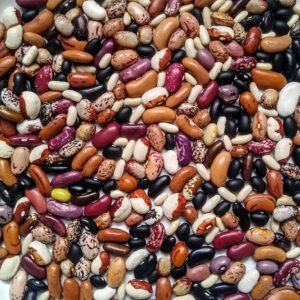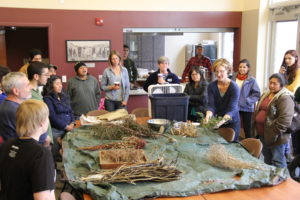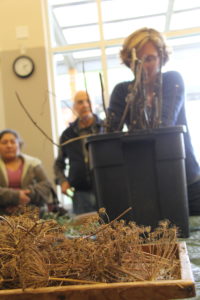
 Last Saturday OSA hosted an organic seed training in Mount Vernon, Washington, for 40 participants, half of whom were Spanish-speaking. It was the first workshop that OSA has conducted with a translator.
Last Saturday OSA hosted an organic seed training in Mount Vernon, Washington, for 40 participants, half of whom were Spanish-speaking. It was the first workshop that OSA has conducted with a translator.
The training provided the basics of seed saving and the climatic requirements for producing seed crops. OSA’s Micaela Colley and Laurie McKenzie covered a lot of ground, beginning the day with reproductive plant biology, discussing the differences between self- and cross-pollinating crops, and how those differences translate into various requirements for population sizes and isolation distances. From there the training moved on to presenting crop-climate categories to help participants understand which seed crops can successfully be produced in which climates.
 After lunch participants learned about harvesting, threshing, cleaning, and storage of seed crops. OSA brought several examples of seed crops from different families to discuss and illustrate the topics covered throughout the day. There were hand-cleaning demonstrations and a winnowing demonstration using a box fan.
After lunch participants learned about harvesting, threshing, cleaning, and storage of seed crops. OSA brought several examples of seed crops from different families to discuss and illustrate the topics covered throughout the day. There were hand-cleaning demonstrations and a winnowing demonstration using a box fan.
This training was the fifth of six that OSA is hosting this fall thanks to support from a USDA Risk Management Agency (RMA) grant. RMA support is also allowing OSA to write and soon release a new publication, titled: Climatic Considerations in Organic and Specialty Seed Production in the Northwest. The publication, which will also be available in Spanish, provides growers an understanding of climatic challenges in their region and how to mitigate these challenges through risk management strategies. The publication will also provide information on which crops are best suited to various climates.
These trainings are critical for expanding the base — and improving the skills — of our nation’s seed growers. Seed production requires specialized knowledge to produce quality seed. That’s why understanding local environmental conditions and their impact on the quality of seed production is so important to a seed producer’s success. In any given region there are certain crops and varieties that are best suited to the environmental conditions.
The last climate risk training in seed production for 2013 will be in Olympia, WA, on November 6, 2013. You can register here. To receive quarterly updates on future trainings and other OSA events, sign up for our newsletter
